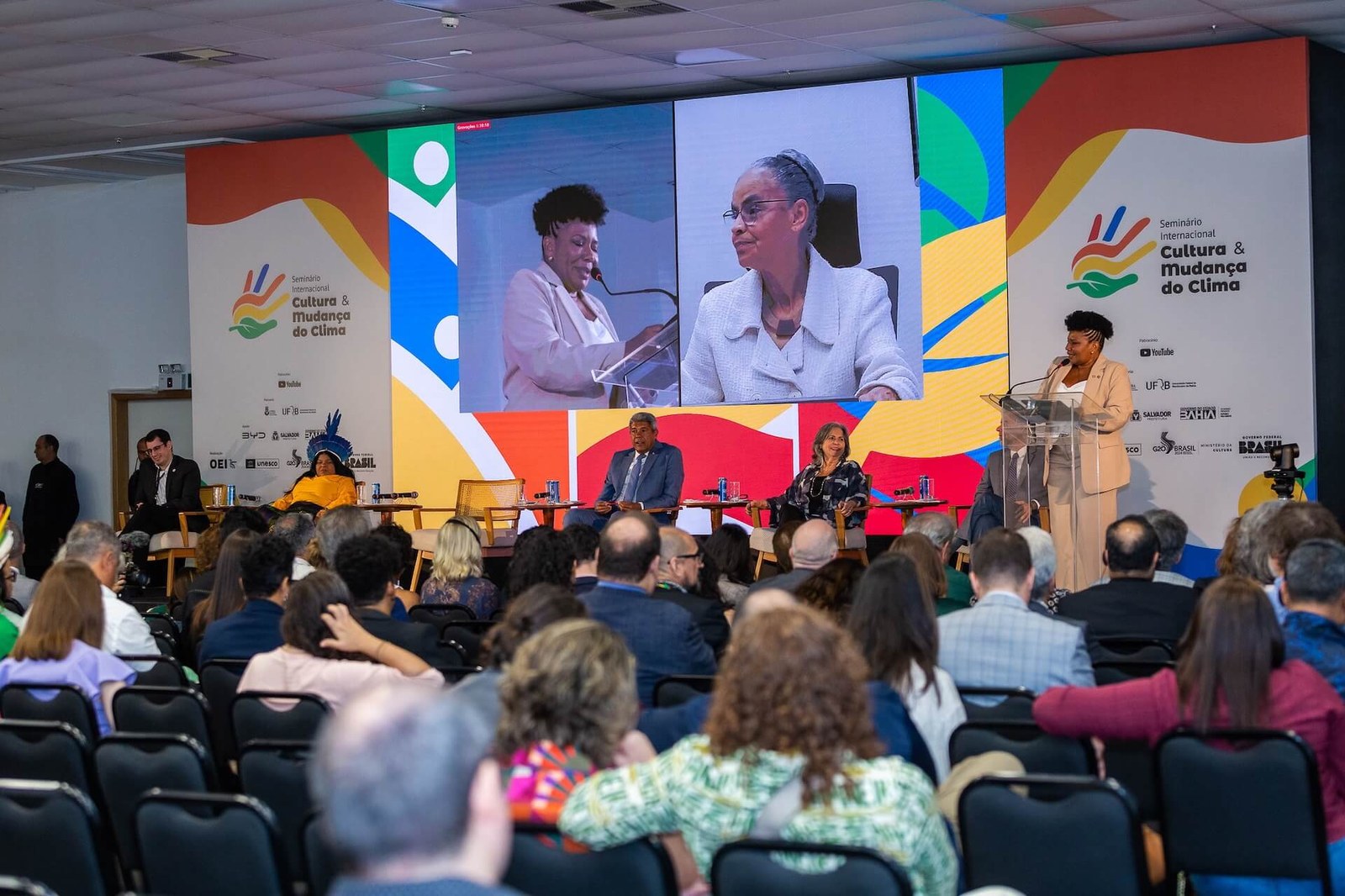Relations between Culture and Climate Change are themes of the G20 International Seminar
As part of the Culture Working Group's agenda this week, the side event with 11 panels focused on the impacts of climate change on cultural and artistic activities that collaborate with environmental awareness and sustainability in the sector. The agenda takes place in Salvador, Bahia.

What role do cultural actions play in mitigating the consequences of climate change? How to make art aligned with sustainability? How to think about the creative economy in this scenario where solutions to socio-environmental issues are urgently needed?
These were some of the questions that guided the 11 panels that were part of the program for the last side event of the G20 Culture Working Group (WG), which is meeting this week in Salvador, Bahia, for its technical and ministerial meetings. The “International Seminar on Culture and Climate Change,” held on November 4 and 5, invited those who reflect on and create culture to discuss the matter.
The Minister of Culture of Brasil, Margareth Menezes, emphasized the importance of the seminar at its opening, held on the eve of the 29th United Nations Framework Convention on Climate Change. “This effort requires a new awareness of the human role, recovering our memory of affection and responsibility in our relationship with the environment. We need to touch hearts and minds, as it is up to each of us to be an agent promoting this change in behavior and thinking,” she said.
The Ministers of the Environment and Climate Change, Marina Silva, and of the Indigenous Peoples, Sônia Guajajara, also participated in the opening.
International contributions
In the first panel on Monday (4), entitled “Climate crisis, a crisis of imagination,” Alison Tickell, an activist from the United Kingdom, highlighted how the pervasiveness of the agenda is still new and how important it is to be institutionally recognized, as occurs in an unprecedented way in Brasil. “It's the first time I've seen so many ministers discussing this topic passionately. This is an exceptional moment and will certainly have significant consequences. Taking care of nature is a necessary part of culture. The climate crisis is a consequence of extractivist values, culture can transform mentalities and behaviors for the benefit of the world,” she said.
Alison Tickell is the founder of Julie's Bicycle, a non-profit organization created in 2007 to support arts and culture, act on climate change, and develop a new approach to global environmental challenges.
At the beginning of the debates on Tuesday (5), Fabio Scarano, PhD in ecology at the University of St. Andrews, Scotland, contributes to the panel “Culture, cosmologies and climate,” pointing out that everything we recognize and feel as sacred expresses care. “We separate art, spirituality, and nature, but everything is interconnected. The perception of the sacredness of nature is fundamental to inspire care. We have turned everything into commodities and created disconnection. Everything is fast, accelerated and disconnected.”
Scarano argues that culture and science should be synonymous to change the climate scenario. “Separating culture and science is a mistake. Culture is knowledge and must be aligned with science. We have a paradox: we recognize the climate problem but don't take action because we don't feel it. And to feel it, you need culture and art. That thing inside us is what brings about change. We need to feel. We want some change in the world, but we don’t want to change,” he noted.
Organization
The “International Seminar on Culture and Climate Change” is organized by the Ministry of Culture in partnership with UNESCO and the Organization of Ibero-American States for Education, Science, and Culture in Brasil (OEI), with support from the Government of Bahia, the city of Salvador, BYD, the Federal University of Recôncavo da Bahia (UFRB), the Federal University of Bahia (UFBA) and sponsorship from YouTube.
Information from the Ministry of Culture
*Translated by PGET-UFSC